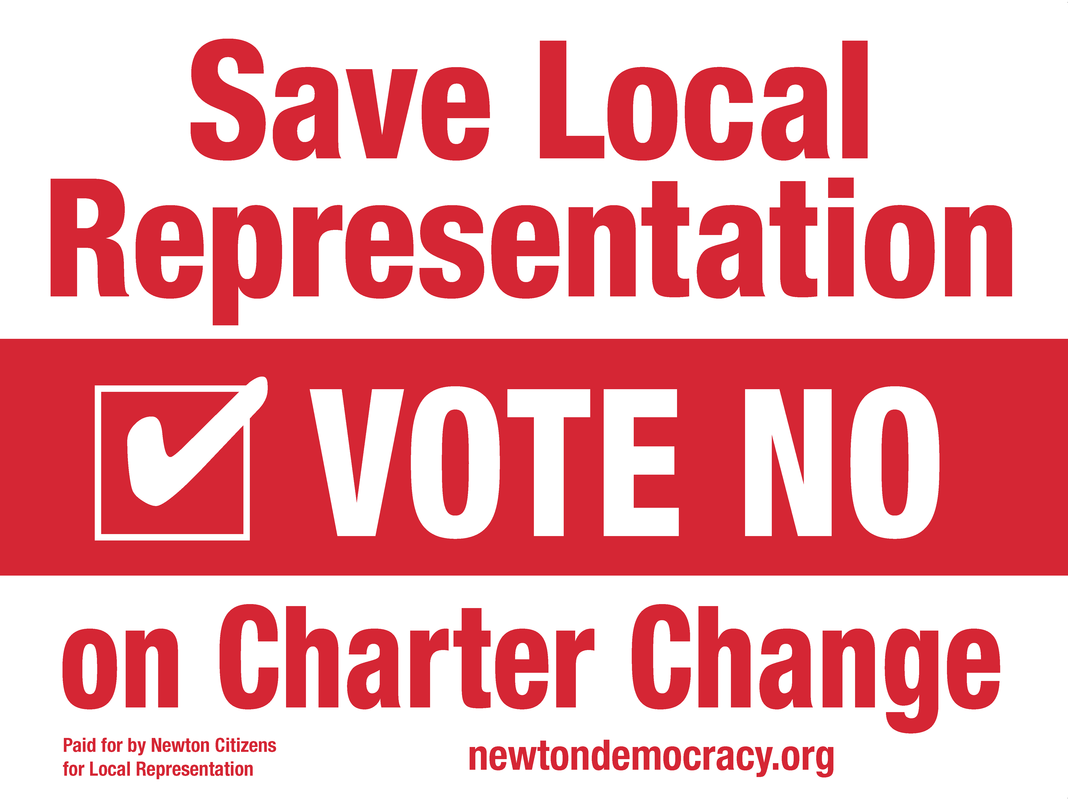|
Remarks before the Charter Commission Meeting 12 April 2017 Thank you for your service. You deserve our respect and thanks. I hope I have conveyed that to all of you. This is a policy disagreement. As conveyed to you last night by email, I researched the city council compositions of the 56 municipalities in Massachusetts that use a city council form of government. Your proposals are bigger outliers than our current council (google spreadsheet). Of the 56 communities, 84% have ward-elected councilors. Of the communities smaller than Newton, 87% include ward-elected councilors; almost 9 out of 10. Where they are in place, ward-elected councilors constitute the majority of the council in 83% of the cases. The most typical 13 member council is 8 ward-elected and 5-at-large.
No council bears a resemblance to where you landed after last meeting. Not one. None use at-large with residency and none have 12 members. The proposal would put Newton in the small minority of nine cities (16%) that have no ward-elected representation on their city councils. But it gets worst. The remaining 296 towns in Massachusetts have a legislature in the form precinct-elected town meeting members. In that context, only nine out of 352 of Mass communities currently deprive their residents of ward-elected representatives (2.6%). 98.4% of communities provide their residents ward-elected representation. The vast majority of these communities are much smaller than Newton and thus would be perceived as needing less granular representation than the collections of villages that constitute Newton. While some may not have a “Strong Mayor” form of government, it is the strong mayor form used in Newton that most demands diverse viewpoints enabled by ward-elected councilors. Cities around the country are being sued under the Voting Rights Act for the negative impacts of 100% at-large city councils in California, [such as Richmond], most recently in Santa Clara, due to the lopsided representation that can results (e.g. Lowell). Even if Newton’s demographics do not put it at risk for this, is this the example that Newton wishes to set for other cities? Thank you. Jack Prior Newton Citizens for Local Representation http://newtondemocracy.org Post Meeting Note: Under pressure from their supporters, the Charter Commission reversed their earlier vote to distribute the 4 non-residency seats into districts noting the complexity of defining districts at late minute. Because these seats would have been elected at-large as well, the change had done nothing to improve the charter with regard to direct representation, but would have ensured head to head races and some assurance of geographical balance in where councilors lived. The charter now reverts to the original, which allows for power concentration in a single ward, neighborhood, or street, and lacks head to head competition.
0 Comments
Leave a Reply. |
Mailing AddressNewton Citizens for Local Representation
PO Box 600540 Newton, MA 02460 |
|
 RSS Feed
RSS Feed
